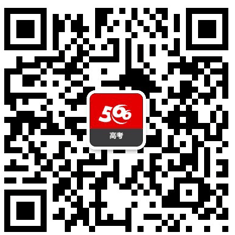点击查看:2020年高考英语抢分题型专练及答案汇总
(一) can/could
1. 表示能够做某事(具备某种能力)(could主要指过去);
2. 表许可; 用于疑问句表示请求(could表示语气更加婉转);用于否定句表示不允许。
3. can还可表一时的可能性。
【考例1】
I’m going to Europe on vacation together with John if I ______ find the money. (2012全国II)
A. can B. might C. would D. need
解析:Acan在句中意为“能够”。
【考例2】
Peter ______ be really difficult at times even though he’s a nice person in general. (2008辽宁)
A. shall B. should C. can D. must
解析:Ccan在句中表“可能”。
(二) must
1. must用于肯定句中表示说话人的意志或义务,或者坚决要求某人做某事,意为 “必须”;mustn’t表示“禁止”。
2. 在以must开头的疑问句中,肯定回答用must;否定回答用needn’t 或don’t have to,表示“不必”。
3. 另外还有一种含义为“偏要”。表示说话人生气或不满的情绪。
【考例1】
—Shall I inform him of the change of the schedule right now?
—I am afraid you ______, in case he comes late for the meeting. (2011福建)
A. will B. must C. may D. can
解析: B。must意为“必须”。
【考例2】
—______ you interrupt now? Can’t you see I’m on the phone?
—Sorry Sir, but it’s urgent. (2012重庆)
A. Can B. Should C. Must D. Would
解析:C。must在句中意为“偏要,非要”。
(三) will / would
will (would) 表意愿, 用于各种人称的陈述句,还可表示某种习惯,或在疑问句中提出请求。主语为物时,可意为“不起作用”。
【考例】
Days later, my brother called to say he was all right, but ______ say where he was. (2012江苏)
A. mustn’t B. shouldn’t C. wouldn’t D. mightn’t
解析:C。would在句中为will的过去式,表意愿。
(四) may / might
表示允许,和can/could一样,可用于各种人称。但要注意:在疑问句中will/would表示征询对方许可或提出请求时,常用于第二人称, would / might/could形式常表语气委婉,不表示过去时态。
【考例】
—______ I take the book out?
—I’m afraid not. (2010四川)
A. Will B. May C. Must D. Need
解析:B。will/would 用于第二人称表示“请求”;而may可用于各种人称。
(五) shall/should
1. shall用于二、三人称,表示“命令、威胁、警告、强制、允诺”等。
2. 在疑问句中, shall用来征询意见或请求指示,用于第一和第三人称。
3. shall常用在主语是第三人称的条约、法律法规、规章制度等文件中表示“义务”或“规定”。
4. should 用于劝告、建议的目的时,可译成“应该”,表示主观情况。
【考例】
One of our rules is that every student ______ wear school uniform while at school. (2012辽宁)
A. might B. could C. shall D. will
解析:C。shall在句中表示“义务”或 “规定”,意为“应该,必须”。
考点二、表推测的情态动词
(一) 对现在的情况或客观事实推测
1. 对现在或客观事实的肯定推测
must意为“肯定、准是、想必是”;should意为“很可能、该……”,指按常理推测;may(might)意为“也许、大概”,表示把握不大的推断;can/could可用于疑问句表示怀疑(could则表示更不确定);could还表示现在或将来的可能性。
【考例1】
—What are you doing this Saturday?
—I’m not sure, but I _____ go to the Rolling Stones concert. (2013重庆)
A. must B. would C. should D. might
解析:D。might意为“可能”。
【考例2】
—Good morning. I’ve got an appointment with Miss Smith in the Personnel Department.
—Ah, good morning. You _____ be Mrs. Peters. (2010北京)
A. might B. must C. would D. can
解析:B。答语句意:哦,早上好。你一定是Peters夫人了。
2. 对现在情况或客观事实的否定推测
can’t意为“不可能”、“想必不会”,表示推测的语气相当有把握;couldn’t也可有此用法,但语气委婉。 may not, might not意为“可能不”、 “也许不”,表示推测的语气不很有把握。
【考例】
It ______ be the postman at the door. It’s only six o’clock. (2011江西)
A. mustn’t B. can’t C. won’t D. needn’t
解析:B。句意:门口的不可能是邮递员,现在只有六点钟。
(二)对过去情况的推测
1. must have done过去一定做过某事;
2. can’t have done/couldn’t have done过去不可能做过,肯定没做过某事;
3. can/could have done用于疑问句中表示对过去发生的事情或状态的推测;
4. could have done 过去可能做过某事;
5. may / might (not) + have done过去可能(没)做过某事。
【考例】
Since nobody gave him any help, he _____ have done the research on his own. (2013课标2)
A. can B. must C. would D. need
解析:B。句意:因为没有人给予任何帮助,他一定是独立完成这项研究的。
考点三、“情态动词+have+过去分词”的其他用法
1. should /ought to have done表示过去本应该做某事却没有做。
2. shouldn’t /ought not to have done 表示本不应该做某事却做了。
3. could have done在肯定句中还可表示“本来可以/可能做成某事”。
4. might have done可表示本来可能,但实际上没有发生的事。
5. needn’t have done表示“本来不需要做某事而做了”。
【考例】
We ______ the difficulty together, but why didn’t you tell me? (2012北京)
A. should face B. might face C. could have faced D. must have faced
解析:C。句意:我们本可以一起面对困境的,可是你为什么不告诉我呢?





微信搜索"考试吧高中资讯" 关注获得高考备考资料

